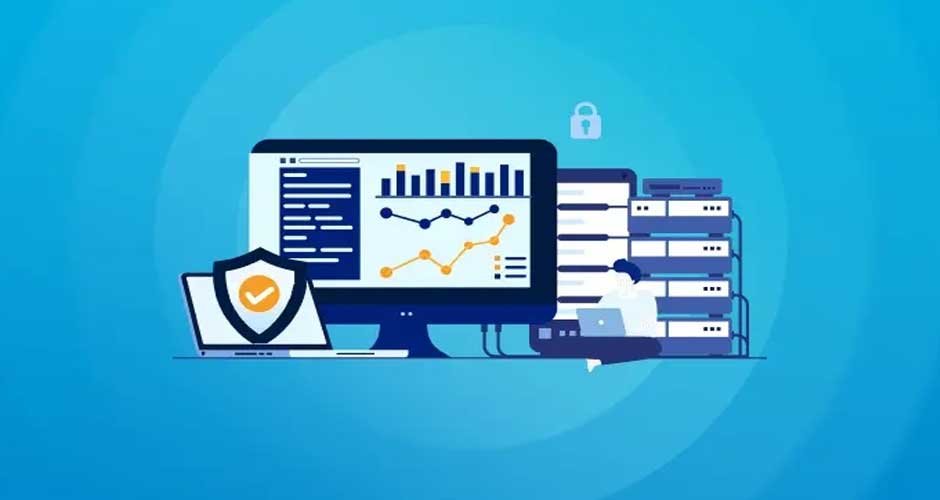In today’s digital era, characterized by pervasive cybersecurity threats and a growing trend towards remote work, virtual private networks (VPNs) have become indispensable for businesses across various locations. Beyond their primary function of enhancing security by encrypting data transmissions, VPNs offer many transformative benefits.
They empower businesses to securely connect dispersed teams and remote employees to company resources, fostering seamless collaboration and productivity regardless of geographic location. Moreover, VPNs optimize network performance by prioritizing critical applications, reducing latency, and ensuring reliable cloud services and real-time data analytics connectivity. Consult with the Managed IT Services Miami team helps businesses to take the benefits of virtual private networks ( VPN) efficienctly.
In this blog post, we will explore the key benefits of virtual private networks for business.
Key Features of VPN For Business
-
Enhanced Security for Remote Workforces
Remote work has grown in popularity recently, stressing the importance of businesses prioritizing their remote employees’ security and connectivity to the corporate network. A Virtual Private Network (VPN) is a crucial tool for improving security for remote workers since it encrypts data exchanged between distant employees and the company’s network, assuring confidentiality and data integrity.
VPN solutions, in addition to encrypting data, protect against Distributed Denial of Service (DDoS) assaults. These assaults can disrupt operations by flooding networks with malicious traffic, but employing a VPN protects remote workers from such dangers and ensures continuous access to company resources.
-
Improved Data Encryption Across Networks
Data encryption is a critical tool for protecting sensitive information from unauthorized access. One of the most efficient methods of implementing data encryption is through Virtual Private Networks (VPNs), which use sophisticated encryption techniques to safeguard data as it travels between devices and VPN servers.
VPN encryption adds extra security against unauthorized access or interception, ensuring that sensitive information remains private and secure even when traveling across public networks. In addition to securing data during transmission, VPNs play a crucial role in network protection by encrypting all internet traffic across various devices and networks.
-
Access to Global Business Resources Without Geo-restrictions
Implementing a VPN service provides numerous benefits, including accessing worldwide corporate resources without facing geo-restrictions. When you surf the web, your IP address and internet service provider (ISP) reveal your location, which may result in limitations or the inability to access specific websites or services based on your location.
Utilizing a VPN, you can circumvent these restrictions by linking to a server in a different country. This alteration in your virtual location empowers you to reach resources that might be off-limits due to geo-restrictions.
-
Increased Network Power and Efficiency
Network performance and efficiency are critical for commercial operations to run smoothly in today’s digital landscape. Virtual Private Networks (VPNs) improve network performance and efficiency by providing a secure and reliable connection.
One significant benefit of using VPNs is the ability to create a dedicated network connection between devices and the VPN server. This dedicated connection can result in faster and more dependable network connections, lower latency, and improved overall network performance.
-
Cost Efficiency and Scalability
Implementing VPN solutions improves cybersecurity and remote access and provides significant cost savings and scalability benefits to enterprises. By implementing VPN technology, businesses can reduce the need for expensive dedicated leased lines and large network infrastructure, lowering operational costs associated with maintaining and upgrading traditional networking installations.
Moreover, VPNs provide scalable solutions that can easily accommodate business growth and changing operational needs without requiring extra physical infrastructure investments. This scalability means enterprises can increase network capabilities to meet rising bandwidth demands and support growing teams or operations while maintaining a streamlined and cost-effective network management strategy.
-
Employee Productivity and Satisfaction
VPNs increase employee productivity and satisfaction, especially in remote work contexts. VPNs enable workers to operate efficiently from anywhere by encouraging safe and dependable remote access to company resources, promoting flexibility and work-life balance. This feature cuts commuting time and costs, allowing employees to devote more time to productive job activities rather than logistical issues.
VPNs also provide seamless access to critical tools, apps, and data, allowing remote teams to collaborate without interruption. They promote job satisfaction by allowing employees to organize their work schedules more effectively while remaining connected to colleagues and resources as if they were in the office.
-
Customer Trust and Satisfaction
VPNs significantly increase consumer trust and satisfaction by ensuring secure online transactions and protecting sensitive customer data. In today’s digital landscape, when cybersecurity dangers loom large, VPNs provide an essential layer of safety by encrypting data flows and protecting sensitive information from breaches and illegal access. This increased security instills confidence in clients by ensuring that their personal and financial information is handled with the highest care and confidentiality.
VPNs allow businesses to provide a secure and seamless online purchasing experience, guaranteeing customers that their transactions are safe from interception and fraud. VPNs prioritize data privacy and security, reducing the risks connected with cyber threats and improving the overall user experience.
-
Enhanced Disaster Recovery and Business Continuity
VPNs play an important role in enhancing business continuity planning and disaster recovery strategies. They provide crucial capabilities that ensure enterprises can quickly recover from interruptions and preserve operational resilience. VPNs allow businesses to protect important information and applications against unanticipated occurrences such as natural disasters, cyber assaults, or system failures by providing secure off-site data backup and recovery options.
These technologies create encrypted pathways for moving data between remote sites and data centers, allowing critical corporate processes to restart quickly without jeopardizing data integrity or security. VPNs also provide redundancy alternatives by providing alternate communication paths and backup configurations, which are essential in avoiding downtime and ensuring continuous service delivery to clients.
Conclusion
As businesses increasingly rely on the internet for their operations, it is imperative to prioritize cybersecurity to safeguard sensitive information. Virtual Private Networks (VPNs) present a reliable solution to protect your business from security breaches, data leaks, and unauthorized access. By encrypting your internet connection and masking your IP address, VPNs provide an additional layer of protection, ensuring that your communications and data remain secure. Beyond enhanced security, VPNs offer several ancillary benefits, including facilitating remote work, bypassing geo-restrictions, and improving network performance. To get more insights on VPN, contact IT Support Tulsa experts.












